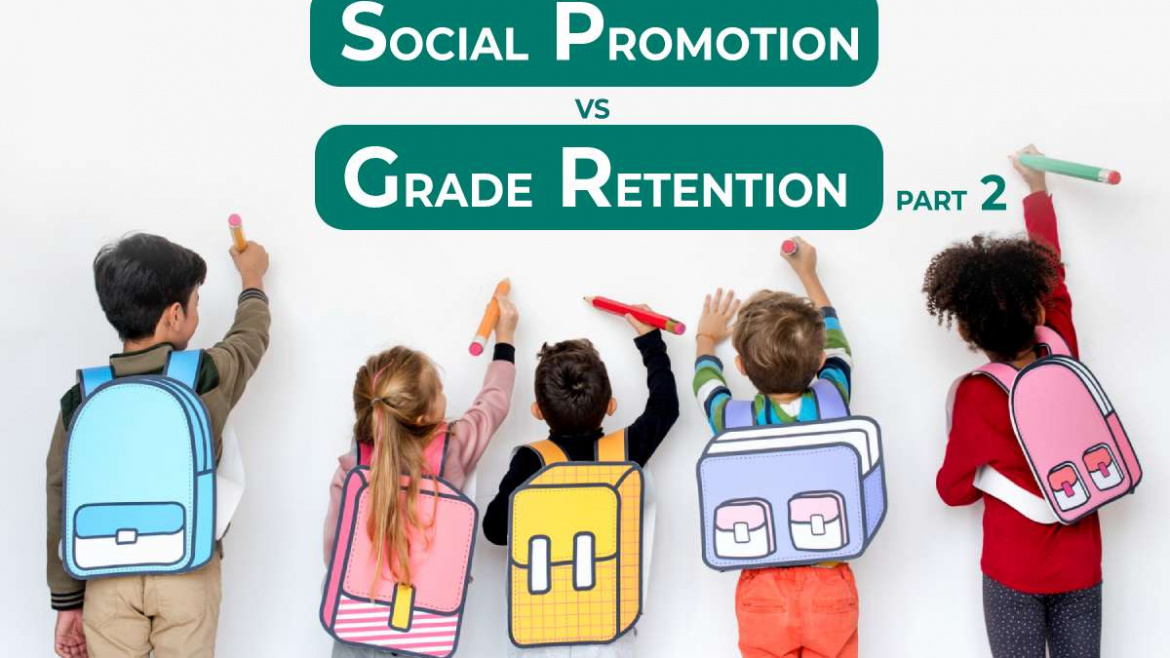As educators and school authorities debate on the benefits of social promotion vs. grade retention, the pendulum swings back and forth on these two practices that are often the outcome to low student performance. Research on the benefits of these two options has come to different conclusions on their efficacy.
When the graded schools began to replace the one-room schoolhouse in the mid-19th century, students were promoted on “merit”, the mastery of an inflexible academic standard for each grade level. Around the 1930s, however, changing attitudes toward the role of schooling and the psychology of the individual student prompted a shift toward an approach called “social promotion”.
Social Promotion is the practice of promoting students to the next grade when they have failed to master part or the entire grade-level curriculum. It is considered a “social” policy because it does not have the stigma of failure that is associated with grade retention. The intent of social promotion is to keep intact the social and psychological well being of under- performing students by allowing them to stay with their peers. Also, any educational policy that would base promotion on the result of a single test is seen as ignorant and cruel.
Does social promotion exist? Sure, it does. Teachers have always complained about kids coming into their classrooms unprepared for that year’s work. Promotion decisions, like grade retention, are decided on the basis of test performance in a variety of subject areas, and these decisions are made at virtually every grade level. Other criteria that are considered for social promotion include principal’s input, request from parents, evidence of performance in class, attendance, and rarely student requests. In some instances, schools decide on promotion criteria for students with learning disabilities that are based on meeting certain IEP (Individualized Education Plan) objectives and goals developed for that student.
The practice of moving students to the next grade even if they do not have required skills has received increasing attention. Educators believe social promotion to have a negative effect on student achievement as it ensures failure by neglecting to develop the skills in students’ that are required for future studies and employment. Unfortunately, students who are socially promoted year after year finish school without the skills and knowledge necessary, and it sends a message to every student that effort and achievement hardy matter.
However, it is said that low-performing students learn more if they are promoted than if they are held back. One reason for this is that the elementary and secondary school curriculum does not change radically from one grade to the next; there is a lot of review and overlap. Another is that it is simply boring to repeat exactly the same material. Also, if social promotion is made a thing of the past, students with learning disabilities may take a longer time to finish school.
Another argument against social promotion is that it affects the school system’s achievement levels. But evidence from school systems in Japan and Finland shows social promotion does not damage achievement levels. In International comparisons these two school systems score as well or better than any other Nations do.
To be continued.
READ OUR PREVIOUS BLOG ON SOCIAL PROMOTION VS GRADE RETENTION : https://seedse.ae/social-promotion-vs-grade-retention/

